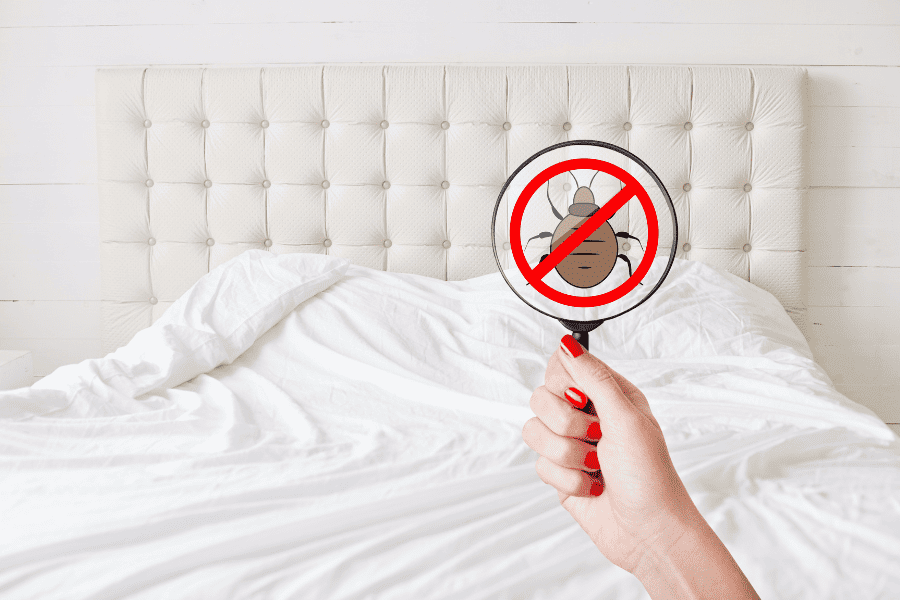READY TO GET STARTED?
REQUEST A FREE ESTIMATE
Fill out the form below or call (888) 466-7849 for a free, no-obligation estimate.

Bed bugs are tiny, invasive pests that can easily hitchhike a ride with you after traveling and infest your home. Bed bugs are notoriously difficult to get rid of once they’ve made themselves at home in your furniture, bedding, and even carpet. To avoid the headache and expense of a bed bug infestation, consider following these tips to prevent them after you’ve come home from traveling.
Upon your hotel arrival, consider inspecting your hotel for bed bugs and checking the bed bug registry before booking a room. After your stay, when packing up and leaving your hotel room, do a thorough inspection of all your items, including luggage, bags, and clothing you’ve traveled with. Check for any signs of bed bugs, such as live bugs, shed skins, and brown stains on the mattress or bedding. Pay close attention to the seams of your luggage, as bed bugs often hide in small crevices. If you find any evidence of bugs, throw out your luggage and purchase a new one or seal it in a plastic bag until you can properly treat it.
As soon as you get home from your trip, inspect and unpack your clothes outside instead of inside your home. After unpacking, wash all your clothes and bedding in hot water as soon as possible. Bed bugs cannot survive in temperatures above 120°F, so washing and drying your items in the hottest setting is one of the best ways to kill any hitchhiking bugs. If you cannot wash an item in hot water, seal it in a plastic bag and place it in the freezer for a few days to kill any bugs that could be hiding inside.
After unpacking and washing your clothes, it’s still important to inspect your home after a trip. Inspect the areas where you often store your luggage and clothing, such as closets, dressers, and bedside tables. Check for any signs of bed bugs.
Even if you take these precautions, bed bugs can still find their way into your home. Be vigilant and watch for any signs of bed bugs, such as bites on your skin, live bugs, or small bloodstains on your bedding. If you suspect that you have a bed bug infestation, it’s best to call your local pest control company for help. These bed bug experts will be able to provide you with a thorough inspection and a treatment and prevention plan.
Categories